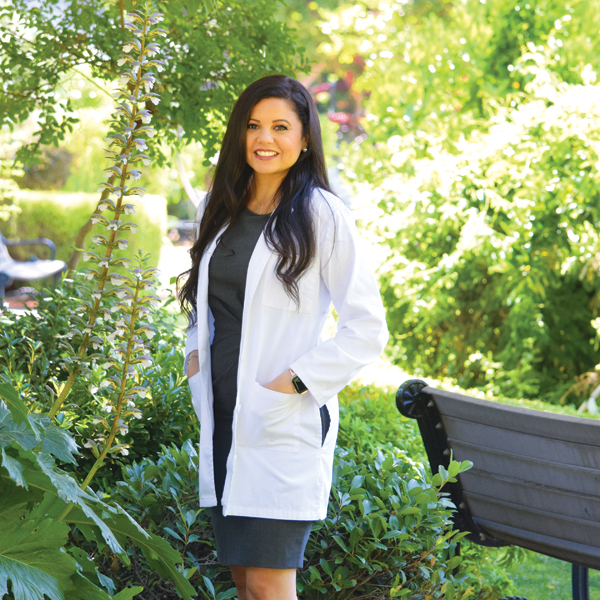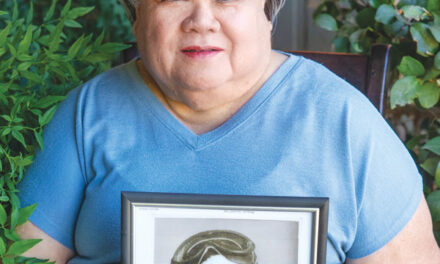Anyone faced with a health care crisis has probably experienced how the nation’s health care system doesn’t adequately serve the patients it’s supposed to serve.
“Health care has evolved from a personal, human support network to a rush-through of doctor appointments, a push-through at the pharmacy and fragmented communications with other sub-specialty medicine,” says Dr. Sarah Almilli, founder and CEO of ELAK and a licensed advance practice pharmacist.
ELAK is a local health care service with a membership subscription model for patient care. The goal is to bridge the gap between an overworked health care system and quality care. The word “elak” means “for you” in Arabic.

Born in Egypt, Almilli and her family moved to Kuwait before settling in San Diego. After college and post-graduate pharmaceutical training, she went to work for Kaiser Permanente in Sacramento. Along the way, she gained clinical and executive leadership experiences in health care.
Almilli designed ELAK to provide subscription boutique services for patients. She says, “Under our model, patients receive personal and timely support with understanding of various medical conditions, understanding medicines and pharmaceuticals, and serving as an intermediary between patients, medical professionals and pharmacies.”
She notes two disparate realities in modern health care. First, the number of people with chronic medical conditions is growing. Second, the number of primary-care doctors and staff can’t keep up with demand.
“The average number of weeks for a patient to see their primary-care physician in California is two to three weeks,” she says. “The average length of visit for the patient and the physician is 16 minutes. The doctor typically spends the first five minutes on the biggest problem, and then one problem per minute afterwards.”
At pharmacies, timeframes are even more compacted. Patients wait in line for 30 minutes to consult for 30 seconds with a pharmacist. “The patient most often goes home overwhelmed and unprepared. This follows a potentially new diagnosis, or a draining hospital stay with medications they know nothing about,” she says.
Next steps are predictable. Patients ask friends or family members for unprofessional advice or turn to the internet for dubious research. “Patient compliance to medication use suffers, which is a major reason patients need to return to urgent care, emergency departments or repeat hospital stays,” she says.
The solution, she believes, is quick, easy and consistent access for patients in crisis or facing newly diagnosed problems. Help must be available after normal work hours and on weekends.
Another important component of Almilli’s subscription service is follow-up care. Pharmaceutical staff contact patients once a week or more as needed. “And when it’s time for the doctor’s visit, our staff goes with the patient to close any knowledge or communication gaps,” she says.
Subscription or boutique medical services are becoming popular as patients live longer and experience more health challenges. For years price barriers kept boutique medical services beyond the reach of many people, but prices have become more reasonable as more providers begin to offer local subscription coverage.
For information, visit elakhealth.org or call (818) 913-9043.
Cecily Hastings can be reached at publisher@insidepublications.com. Follow us on Facebook and Instagram: @insidesacramento.















